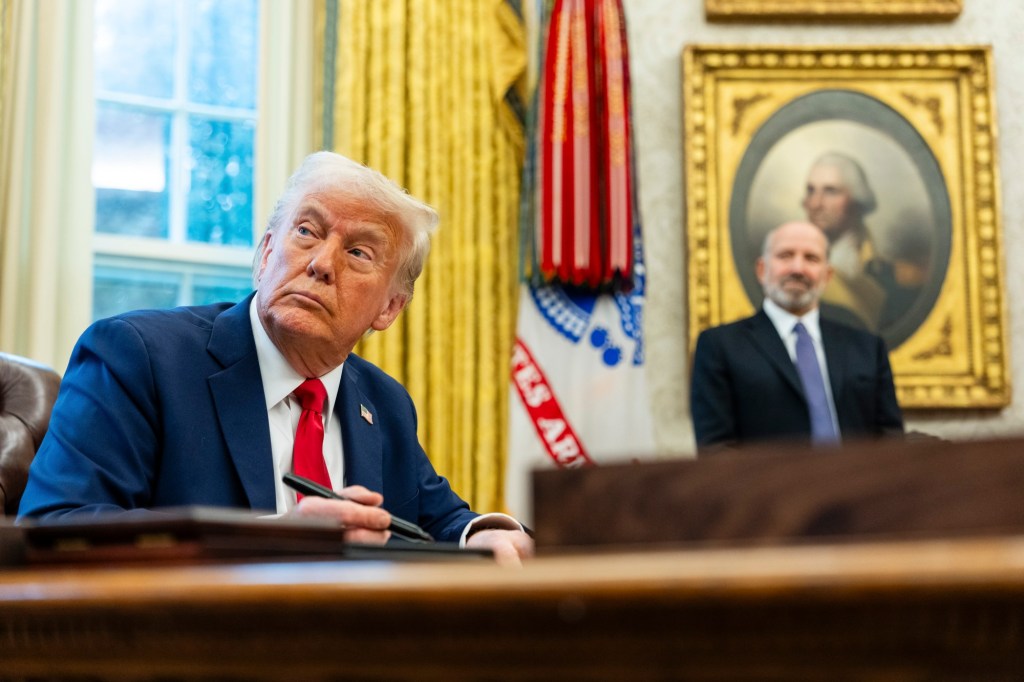
If sweeping tariffs on our literally most treasured trading partners are such a good idea — and they are not; they are a demonstrably terrible idea — then why announce them and then immediately put a pause on them, as President Donald Trump did this week?
And if the president actually does understand the international economics of it all and so knows deep down that tariffs are counter-productive to the health of America’s businesses, then why would he think that they would be any better of an idea come April 2?
Because it simply can’t be, as Trump’s most ardent economic apologists have long maintained, that such feints are the tactics of a brilliant negotiator as part of the art of the deal that mere mortals can’t be expected to comprehend. He’s back-pedaled so many times on tariffs, his “favorite word in the dictionary,” that it’s impossible to say what his real end game is. (That’s why China, whose leaders are totalitarian but nothing if not smart, is staying mostly silent on the tariff issue until the United States’ confusing back and forth on it settles down.) Certainly the financial markets despise the tariff policy, both threats of them and actual impositions; U.S. equities plunged when Wall Street opened Thursday morning because, as Bloomberg reported, “Trump’s tariff plans continue to spook investors.” U.S. stocks closed down 1.8% at the end of the trading day.
For an administration that claims to want to make the American economy great “again,” would it not have made sense to check in with Detroit automobile manufacturers before enacting, or pretending to be about to enact, huge tariffs on Canada and Mexico, partnerships with which make U.S. cars and trucks cheaper and better?
Because after Trump said that he would apply across-the-board 25% tariffs on both of our neighbors, the auto industry properly screamed bloody murder — American vehicles go back and forth across both borders as they are built — and the administration immediately reversed itself, giving automakers a one-month deferral.
Why not talk to Detroit beforehand instead of making such a foolish decision detrimental to American business, to labor, to consumers?
And, again, if the tariffs are a bad idea now — and they are — why will they be any better of an idea in April? Would we be waiting on, say, proof from Canada that it is cracking down on (almost non-existent) cross-border fentanyl smuggling?
The president in his speech this week to a joint session of Congress said something that may provide a window into his worldview: “Tariffs are not just about protecting American jobs, they are about protecting the soul of our country.”
Is the soul of our country hurt when it’s cheaper to buy a plain Chevy because some of its parts are from Canada, or, for that matter, easier to buy a fancy BMW partially manufactured in San Luis Potosi and partially in Alabama? No consumers we know of would so argue.
But if what we are dealing with here is a supposedly tough-guy president who is actually letting his emotions get in the way of Americans’ economic health, then one of his financial-sector CEO supporters — or, for that matter, entrepreneur Elon Musk — needs to sit him down and explain how important are our trading relations with Canada and Mexico, which account not only for more than a quarter of U.S. imports — but also almost a third of U.S. exports as well.
In international trade wars, both sides inevitably end up simply shooting themselves in the foot. Left to their own devices without government meddling, countries manufacture — and provide service jobs for, and create consumer efficiencies for — what they make best. Putting the heavy hand of 19th-century tariffs on the 21st-century scale of world trade would be disastrous for our own economy and that of our neighbors in North America. The administration doesn’t need to delay new tariffs for a month — it needs to delay them forever.



